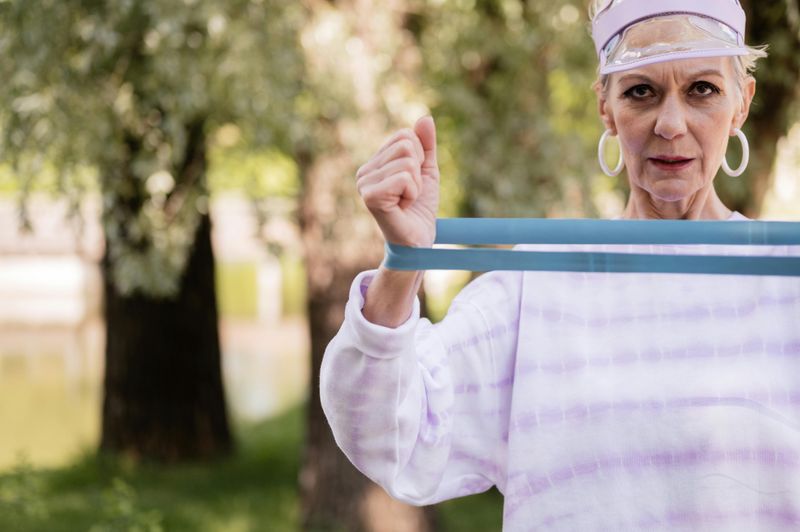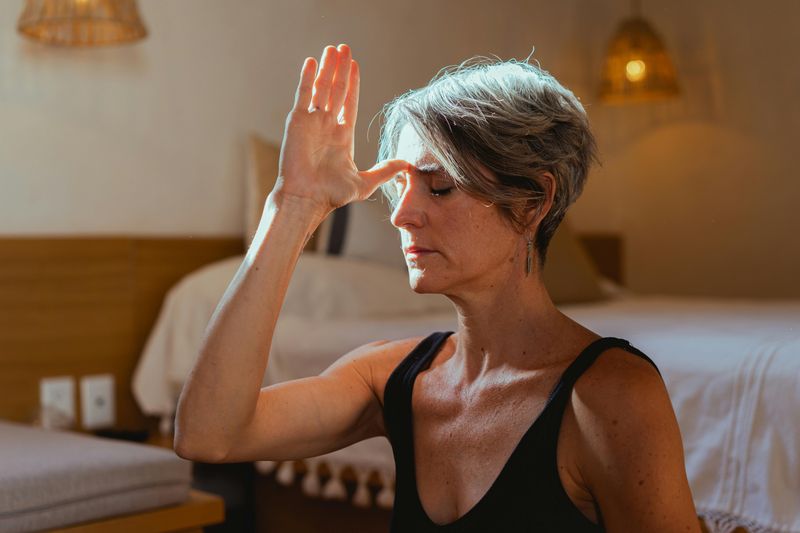Growing older doesn’t mean losing your spark or slowing down completely. Some people seem to handle the aging process with ease, staying healthy, happy, and full of life well into their later years. What makes these individuals different? Scientists and researchers have identified certain habits and attitudes that help people age gracefully, maintaining their physical health, mental sharpness, and positive outlook on life.
1. Staying Physically Active

Regular movement keeps the body strong and flexible as years pass. People who age well make exercise a natural part of their daily routine, whether that means walking, swimming, dancing, or gardening.
Physical activity doesn’t require expensive gym memberships or intense workouts. Even 30 minutes of moderate movement each day can improve heart health, maintain muscle strength, and boost mood through natural endorphin release.
Those who stay active report better balance, fewer falls, and more independence in their golden years. Movement also helps manage weight and reduces the risk of chronic diseases like diabetes and heart conditions.
2. Maintaining Strong Social Connections

As we age, friendships and family connections grow even more important. Research shows that strong social ties boost longevity and reduce depression.
Regular conversations, shared meals, and group activities provide mental stimulation and emotional support. Having someone to talk to during difficult times reduces stress and helps people cope with life’s challenges more effectively.
Technology has made staying connected easier than ever before. Video calls, social media, and messaging apps help bridge distances when loved ones live far away, ensuring nobody feels alone.
3. Eating a Balanced Diet

Nutrition plays a crucial role in how our bodies age over time. Those who age gracefully typically choose whole foods over processed options, filling their plates with colorful vegetables, fruits, lean proteins, and healthy fats.
A balanced diet provides essential vitamins and minerals that protect against disease and keep energy levels steady throughout the day. Omega-3 fatty acids support brain health, while antioxidants fight cellular damage that accelerates aging.
Drinking plenty of water matters too. Proper hydration keeps skin looking fresh, helps organs function properly, and prevents fatigue that many mistake for normal aging.
4. Keeping the Mind Sharp

Your brain needs exercise too. Books, puzzles, new skills, and strategy games keep your mind sharp as you age.
Challenging the brain creates new neural pathways and strengthens existing connections. Many people who age gracefully take up hobbies like learning languages, playing musical instruments, or studying subjects that fascinate them.
Lifelong learning keeps curiosity alive and gives people a sense of purpose. Whether attending classes, watching educational videos, or exploring new interests, continuous mental stimulation helps prevent cognitive decline.
5. Managing Stress Effectively

Chronic stress accelerates aging by damaging cells and weakening the immune system. People who age gracefully have developed healthy ways to handle life’s pressures without letting anxiety overwhelm them.
Deep breathing exercises, meditation, yoga, and spending time in nature all help reduce stress hormones. Some find relief through creative outlets like painting, music, or journaling their thoughts and feelings.
Learning to let go of things beyond your control makes a huge difference. Accepting that perfection is impossible and focusing on what truly matters helps maintain peace of mind throughout life’s ups and downs.
6. Getting Quality Sleep

During sleep, our bodies repair themselves and memories are strengthened. Most adults need seven to nine hours, but older individuals often struggle with rest.
Those who age well prioritize good sleep habits by maintaining consistent bedtimes, creating dark and cool sleeping environments, and avoiding screens before bed. Quality rest improves mood, strengthens immunity, and enhances mental clarity.
Poor sleep contributes to numerous health problems including weight gain, high blood pressure, and increased accident risk. Addressing sleep issues early prevents these complications from affecting quality of life later on.
7. Maintaining a Positive Attitude

Optimism isn’t just about feeling good; it actually impacts physical health. Research shows that people with positive outlooks recover faster from illnesses and live longer than pessimistic individuals.
Gratitude practices, like writing down three good things each day, train the brain to notice positive aspects of life. Finding humor in everyday situations and laughing regularly reduces stress hormones and strengthens social bonds.
This doesn’t mean ignoring real problems or pretending everything is perfect. Rather, it involves acknowledging challenges while maintaining hope and focusing on solutions instead of dwelling on what went wrong.
8. Having a Sense of Purpose

Waking up with something to look forward to makes all the difference as we age. Whether through volunteering, mentoring younger people, pursuing hobbies, or spending time with grandchildren, having purpose gives life meaning.
People with clear goals and reasons to get out of bed each morning report higher life satisfaction and better health outcomes. Purpose provides motivation to take care of yourself and stay engaged with the world.
Retirement doesn’t mean stopping all productive activity. Many who age gracefully start new projects, contribute to their communities, or finally pursue dreams they postponed during their working years.

Comments
Loading…